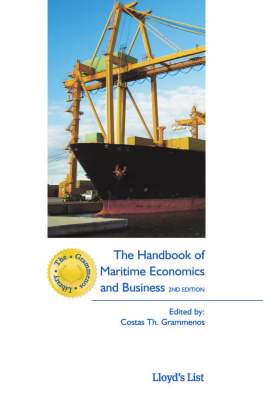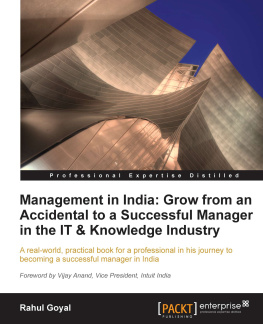1
Business as a Profession
Laszlo Zsolnai
1.1 Existing challenges and deficiencies
The irresponsible and insensitive behavior of business leaders worldwide shows that business is an under-professionalized occupation today. In their paper Is Business Management a Profession? Harvard Business School scholars Rakesh Khurana, Nitin Nohria, and Daniel Penrice argue that if management were a licensed profession on a par with law or medicine, there might be fewer opportunities for corporate bad guys (Khurana, Nohria, & Penrice, 2005).
Sociologists studying the professions have employed a wide range of perspectives and criteria for determining what makes an occupation a profession. Four criteria are extremely important in setting forth the essence of professionalism and comparing business management with the bona fide professions, in particular law and medicine. Criteria for calling an occupation a bona fide profession are as follows:
- (i) a common body of knowledge resting on a well-developed, widely accepted theoretical base;
- (ii) a system for certifying that individuals possess such knowledge before being licensed or otherwise allowed to practice;
- (iii) a commitment to using specialized knowledge for the public good, and a renunciation of the goal of profit maximization, in return for professional autonomy and monopoly power; and
- (iv) a code of ethics, with provisions for monitoring individual compliance with the code and a system of sanctions for enforcing it.
In comparing business management with the more traditional professions of law and medicine following these criteria, Khurana and his colleagues find the former wanting. This shortcoming, they believe, has a direct bearing on societys ability to demand and obtain responsible conduct from executives, as well as on managements ability to maintain the public trust required for the optimal functioning of our economic institutions (Khurana, Nohria, & Penrice, 2005, p. 1).
The criticism offered by outstanding business scholars such as Ghoshal, Mitroff, and others shows that something is rotten in business education today.
In his famous paper Bad Management Theories Are Destroying Good Management Practices, the late London Business School professor Sumantra Ghoshal points out that by propagating ideologically inspired amoral theories, business schools have actively freed their students from any sense of moral responsibility (Ghoshal, 2005, p. 76).
Ian I. Mitroff, distinguished professor of business policy at University of Southern California in Los Angeles, claims that business school faculties are at best guilty of having provided an environment where the Enrons and the Andersens of the world could take root and flourish. At worst they are guilty of being active accomplices and co-conspirators in criminal behavior (Mitroff, 2004).
According to Mitroff the real problem is that business schools have promulgated:
- (i) a mean-spirited and distorted view of human nature (by assuming that humans are completely and entirely ruthless, motivated solely by greed, and purely opportunistic);
- (ii) a narrow, outdated, and repudiated notion of ethics (materialistic egoism);
- (iii) a narrow and highly limited definition of the role of management (management is about making money and can be captured solely in economic terms);
- (iv) an overly reified conception of the subdisciplines of management (a fragmented and separated division of interrelated issues); and
- (v) a sense of learned helplessness and hopelessness among business professionals regarding control of their lives (maintaining an attitude that they have no power to change the system in which they find themselves).
European business scholars are also concerned about the prevailing ethos of todays business schools. Eleanor OHiggins of University College Dublin and Yvon Pesqueux from CNAM Paris warn us that current management philosophieswhat they call managerialismgive rise to the practices that have created scandals and business failures. They believe that management education as presented in the medium of business schools globally has acted as a cheerleader for the management models and practices portrayed above. This is manifested and reinforced by:
- (i) the managerialist perspective;
- (ii) deference to powerful stakeholders, especially companies/prospective employers of students, and students themselves as customers or consumers;
- (iii) simplistic tools and formulas to train students;
- (iv) academic tenure and promotion systems; and
- (v) the extremes of popularist science and pedantic science (OHiggins & Pesqueux, 2009).
We can agree with Joel M. Podolny, former dean of Yale School of Management, who emphasizes that occupations are defined as professions to the degree to which they serve society. And unless management lives up to that service standard, it frankly calls into question what business schools are actually doing. At some level, we then become just trade schools. And we fail to fulfill a universitys mission of creating and disseminating knowledge in the interest of society (Podolny & Khurana, 2007, p. 9.).
1.2 New approaches and good practices
The aspiration of CEMSThe Global Alliance in Management Education is to produce future international managers who can meet the demanding criteria of business management as a bona fide profession.
CEMS is a strategic alliance of leading business schools and multinational companies. Founded in 1988 in Europe, the network has grown steadily, largely due to the success and popularity of its flagship degree program, Master in International Management. The global association of leaders in the pre-experience Masters market, CEMS cannot be equaled in terms of reputation of its ).
Box 1.1 CEMS Academic Members
Full Academic Members:
Australia | : | University of Sydney |
Austria | : | Vienna University of Economics and Business |
Belgium | : | Universit catholique de Louvain, Louvain School of Management |
Brazil | : | Fundao Getulio VargasEAESP |
Czech Republic | : | University of Economics, Prague |
Denmark | : | Copenhagen Business School |
Finland | : | Helsinki School of Economics |
France | : | HEC School of ManagementParis |
Germany | : | University of Cologne |
Hungary | : | Corvinus University of Budapest, Faculty of Business Administration |
Ireland | : | University College Dublin, Michael Smurfit Graduate Business School |
Italy | : | Universit Bocconi, Milan |
Mexico | : | EGADE, Tec de Monterrey |
Norway | : | Norwegian School of Economics & Business Administration, Bergen |
Poland | : | Warsaw School of Economics |
Portugal | : | Faculdade de Economia da Universidade Nova de Lisboa |
Russia | : | St. Petersburg State University, Graduate School of Management |











